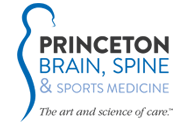Brain Cysts
Benign Brain Abnormalities
Brain Cyst Diagnosis & Treatment
A brain cyst is a fluid-filled abnormality that most often appears in children, but may be found well into adulthood. Though usually benign (non-cancerous) and localized, these fluid sacs can cause brain and nervous system problems that require intervention.
Brain cysts contain pus, blood, cerebrospinal fluid (CSF) or other tissue materials. At times, small cysts that are not growing can be observed using watchful surveillance and routine follow-ups. However, some patients experience quality-of-life symptoms that cause them to seek the opinion of an experienced neurosurgical team.
Treatment of Brain Cysts
Brain cysts that are not causing symptoms can often be managed with surveillance and repeated imaging. When brain cysts lead to quality of life problems, your neurosurgeon may recommend intervention. Depending on cyst type, size and accessibility, treatment options include:
- Image-guided cyst draining or aspiration
- Surgical cyst removal
- Placement of a shunt
- Surveillance to watch for changes
Request a Brain Cyst Consultation
Partnering with primary care providers and imaging specialists to diagnose and treat brain cysts, Princeton Brain, Spine & Sports Medicine neurosurgeons are renowned for their experienced treatment of brain and spine abnormalities. Treating patients like family and helping them create an informed care plan with best-case outcomes, we perform non-surgical, minimally invasive and surgical procedures at leading area hospitals. Reach us online or call our New Jersey and PA offices at 609.921.9001 or 215.741.3141.
Request an Appointment
Submit an appointment request on our patient portal or contact our New Jersey and Pennsylvania campuses to speak with a patient advocate.
